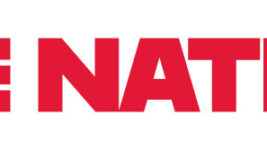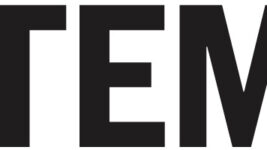TECH TALK
14 Aug 2023
Working From Home in the Live Events Industry

Subscribe to CX E-News
What are your thoughts on working from home? Does it represent freedom, or does it allow your employer to encroach on your private life?
One of the biggest challenges facing employees and employers is the concept of working from home. The last few years has seen a sizeable shift in how and where we work. The term ‘hybrid working arrangement’, ‘work life balance’ or similar seems to be present on a lot of job adverts out in the world. How does it relate to what we do in our industry?
Working from home, or doing work at home is not a new thing for our industry. Technology allowed for this to happen many years before it became a recent buzzword. Conference calls, emails and personal computers capable of running programs such as Vectorworks, MA on PC, and the Adobe suite, meant that it was possible to do some elements of pre and post production from outside of the office.
Working from home in the past has been more of a chore than a liberation for those employed full time by companies. With the all or nothing nature of the industry sometimes you end up with so much extra work you have no choice but to take it home with you.
Freelancers operating as sole traders or small companies typically did not have the extra means to justify spending on an office. Hot desks and other shared office spaces were not really a thing. Doing work from the home office or dining room table was therefore the only feasible option.
Working from home, as it were, was born more out of necessity than luxury or a desire for a better work/life balance.
Some could argue that we were ahead of the curve five years ago, but this all changed after 2020. Events were closed down while other industries rigorously tested the work from home model. Consequently we are a touch out of step. Just about any job that could be done at a computer or on a phone could be done at home.
It’s also not going away anytime soon. On the 14th of July this year, NAB reached a deal that lets its employees work from home. It is one of the first deals worldwide to give private sector staff legal protection for remote work.
Reporting on the deal for Reuters on July 14 2023, journalist Byron Kane wrote; “The deal breaks ground in a global stand-off between corporation and their staff since bosses started calling an end to home-working arrangements that were precipitated by COVID-19.” Like anything one bank does, the other major players all follow in time.
Attitudes have changed in our industry. We are seeing a few job adverts for positions such as in-house technicians/managers/co- ordinators being offered with the flexibility to work at home when it suits. People are more open to a work from home model in many aspects not previously considered. We also have a labour market currently which heavily favours workers, and those that can reasonably propose reworked terms and working conditions will often get them approved.
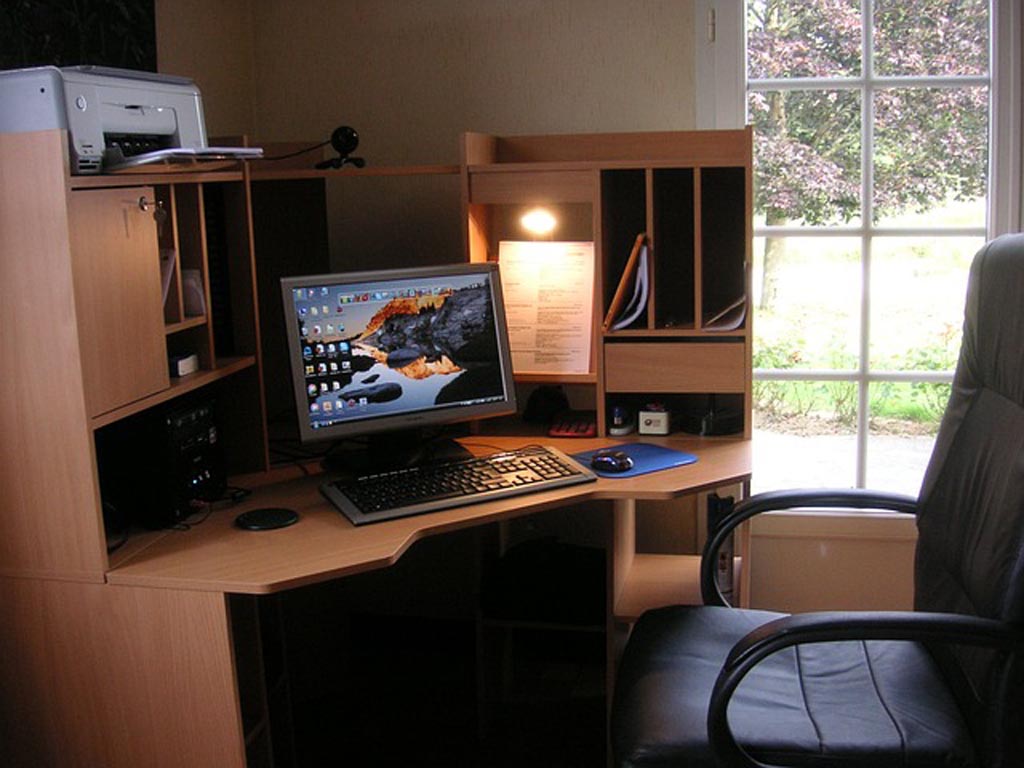
Pros of working from home in our industry:
- In an industry of long and irregular hours, having more friendly hours on your terms creates a bit of balance
- You can work at your own pace and rhythm. Not everybody is at their productive peak between 9-5. Not everybody needs eight hours to get their work done either. There are some of us who are early risers who basically switch off after lunch. Others don’t start firing until late afternoon and into the evening. If you know where you sit you can align your hours working from home with your most productive hours. Try it; you will be surprised how much more you get done and how much more you enjoy it
- You have your own creature comforts with you at home, hopefully making for a much more relaxing environment
- Working from home doesn’t necessarily mean working from home. You could pack up your computer and head down to the beach, park, or favourite café for the day. Much better for your mental health than sitting under fluorescent lights all day
- Cuts out the commute. Many people in the industry travel over an hour each day to get to work, saving both time and money
- Can be an incentive to work quicker and better. A lot of the people employed in this industry are employed to complete a task, and not for their time. There are not as many shift workers in our line of work than the rest of the population
- Potentially a healthier lifestyle. If you can get in a walk during your lunchtime break, or get up and make yourself a healthy breakfast, they will not only help with your health, but your productivity too
- Tax advantages. The amount of stuff you can write off as a cost of working from home makes it worth a look, especially if you are operating as a company. Just make sure you use a qualified tax professional as this is likely to be one of the areas the ATO will be doing a lot of its audits on in the future as more people shift across to working from home
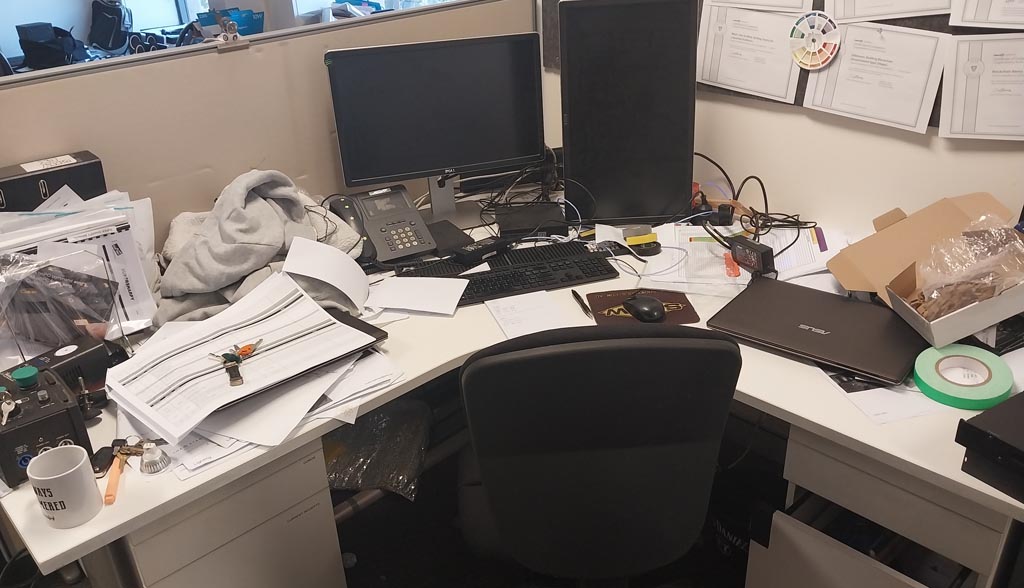
Cons of working from home in our industry:
- Blurring the lines between work life and home life
- Stigma about working from home and being professional. When we think of people working from home we don’t always think of a professional set up. We often think of someone in their pyjamas on their couch with food in one hand. This can make it hard to be treated, and in turn, paid like a professional
- Some managers are not quite across remote work, so they could be a little more overbearing and micromanaging of those working at home than they would be if they were in the office
- Never underestimate the social value of working in the office or around others. This can’t be replaced with Teams meetings and emails
- For some, moving away from the office and to a work from home environment sees their productivity plummet
- Not applicable for all jobs. Loading trucks, bumping in and out shows and all other hands-on tasks can’t be done remotely
- Falling into traps of bad habits. For some, working from home has led to long sleep-ins, unhealthy and irregular eating habits, and being too easily distracted by surroundings such as having the TV going in the background
- No catering
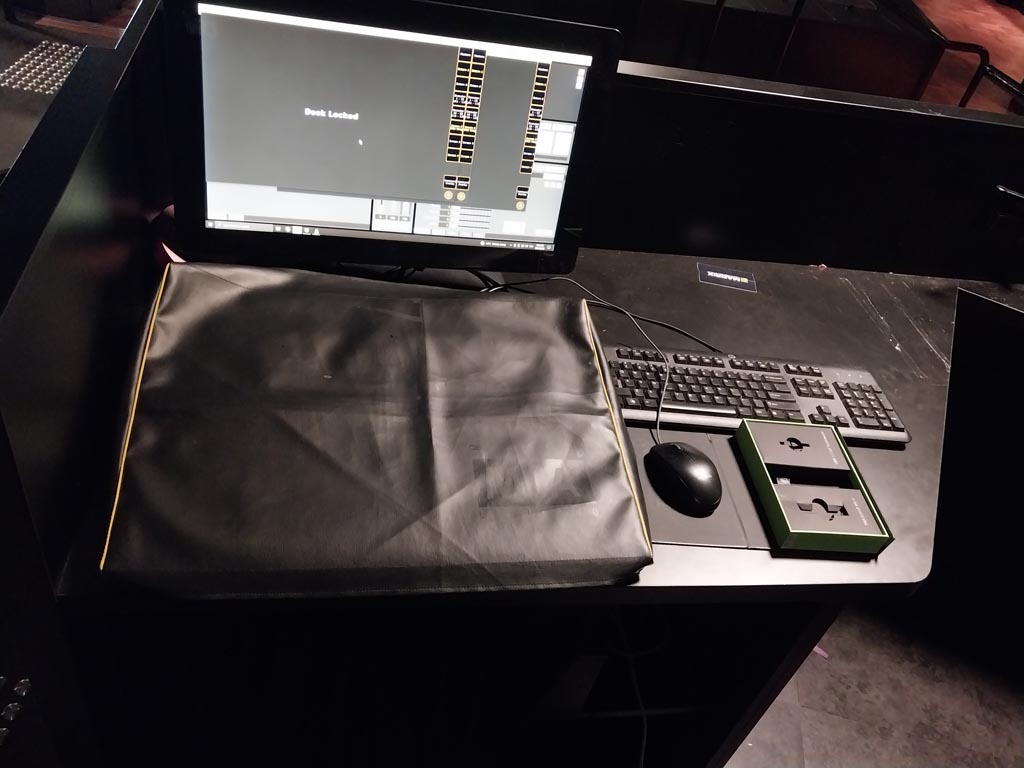
The hybrid working model, while not as new and disruptive as it has been in other industries, still warrants proper consideration. It’s going to be about finding a balance. We don’t want to be so stuck to old ways that we lose quality people to more family friendly settings and deter newcomers chasing a more flexible lifestyle. On the other hand we don’t want to go too far that we end up with events that are flat, disjointed, and ultimately lower quality.
Moving forward, technology and event types will dictate what can and can’t be done in an at-home setting. Hybrid and streaming only events show the most promise where many major elements such as graphics, camera direction and even show calling can take place from home.
We may even have a future where cameras, sound and lights can be operated from home. Maybe techs just need to go in the day before to preset, tune and focus everything and buttons can be pressed at home. Much like a driverless truck, it’s not so much a case of if it will be possible, it’s more of a case of if it can be trusted.
What we aim to do in the Entertainment and Live Events industry is bring people together. With that being said, do you think more people working from home will drive our industry forwards or backwards? Would working from home improve your quality of life or further complicate things?
Subscribe
Published monthly since 1991, our famous AV industry magazine is free for download or pay for print. Subscribers also receive CX News, our free weekly email with the latest industry news and jobs.




